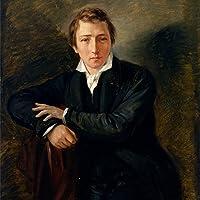
Heinrich Heine
Sull'autore
Heinrich Heine was a prominent German poet, essayist, and literary critic, recognized for his lyrical poetry and sharp wit. Born in Düsseldorf in 1797, Heine's work often reflects the complexities of love, politics, and society. His early education in a Jewish family and later conversion to Christianity influenced his understanding of identity, culture, and the human experience, which he eloquently expressed in his writing. Heine's most notable works include "Book of Songs," which brought him significant acclaim, and his critical essays that challenged the political landscape of his time.
During his lifetime, Heine became an integral figure in the Romantic movement and later a precursor to modernism. His poetry is characterized by its musicality and emotional depth, often blending humor with profound insight. Heine's influence extended beyond his lifetime, impacting various literary figures and movements. Despite facing censorship in his homeland, his works continued to resonate across Europe, making him a celebrated literary figure. Heine's legacy is marked by his ability to capture the essence of 19th-century European thought and culture, securing his place in literary history.